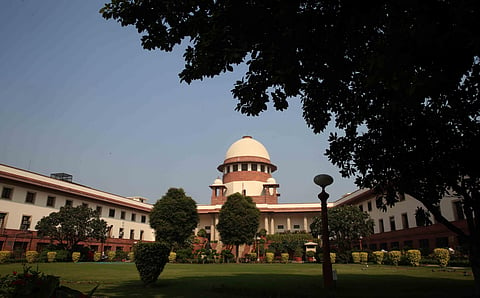

NEW DELHI: The Supreme Court on Friday declined to entertain a plea seeking directions to the Central government to ascertain the feasibility of confiscating black money, benami properties and disproportionate assets.
A bench headed by Justice SK Kaul said it can't issue a mandamus for Parliament to create a law. As the apex court refused to hear the plea, the petitioner withdrew the same.
The petition, filed by advocate Ashwini Upadhyay, also sought life imprisonment for offences such as bribery, black money, benami property, tax evasion, money laundering, profiteering, grain hoarding, food adulteration, human and drug trafficking, black marketing and cheating.
Upadhyay said he filed the plea in view of corruption watchdog 'Transparency International' placing India at 80 in the Corruption Perception Index earlier this year.
"Due to weak and ineffective anti-corruption laws, India has never been ranked even among top the 50 in the Corruption Perception Index but the Centre has not strengthened the laws to weed-out the menace of corruption, which brazenly offends rule of law as well as the right to life, liberty and dignity guaranteed under Articles 14 and 21," the plea said.
It further said that due to the weak and ineffective anti-corruption laws, none of the welfare schemes and government departments are free from corruption.
"Corruption has devastating effects on the right to life, liberty, dignity, and it badly affects social and economic justice, fraternity, the dignity of individual, unity and national integration, thus offends fundamental rights guaranteed under Articles 14 and 21," the plea said.
The plea contended that the corruption hurts economically weaker sections or below poverty line families disproportionately by diverting the funds intended for development, undermines government's ability to provide basic services, seeds inequality and injustice, and discourages foreign aids and investment.